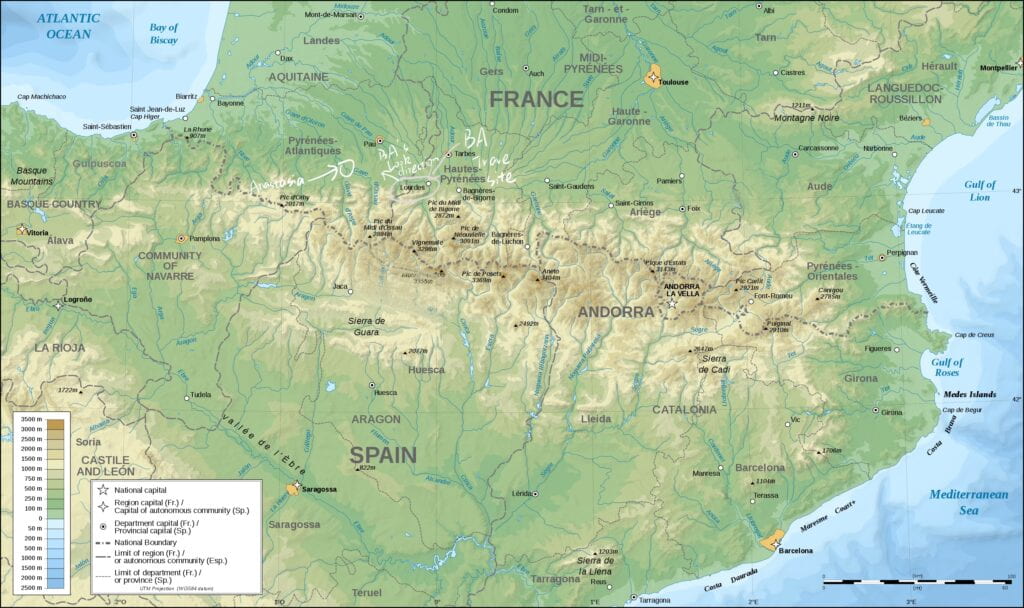You are going to write a short fake interview (questions and answers) about the city you have chosen for Project I. What does your interview comment, support or criticize about the city?
- What kind of interview is it? Come up with a scenario of the interview.
- Who’s being interviewed? Why is this interview important?
- Who’s the interviewer? What kind of narrative does it add to the scenario you have come up with?
- What kind of questions does the interviewer ask? How much information do you want to reveal through the interview? You can also leave the reader with questions.
- What kind of details do you need to include in order to make this interview convincing?
- Provide an image or artifact to go with the interview, but the object does not need to appear in the interview. What is the relevance between the image/object and the interview?
- Post the interview as well as the image/artifact on your blog post and explain their relevance.
Fake interview:
Interviewer(BA below): Sean Baudelaire, the brother of Charles Pierre Baudelaire a French poet who traveled to The Pyrenees in 1838. He followed his brother, traveling alongside Thy Pyrenees, and saw the cities of Anastasia from a far distance. He could not find the geographical information about this prosperous city on the map. So he spent time finding and interviewing people who had been there.
Interviewee(anonymouse): A traveler who had been to Anastasia and stayed there for 1 month.
BA: When I travel alongside the north side of The Pyrenees, more specifically, the northwest corner of the mountain, a place called Lourdes, I saw a city built on the place where three rivers meet. You said you have been there before, can you tell me the detailed position and information about it?
Interviewee: Yeah, I traveled there several years ago. I cannot remember the exact position cuz it was an accident that I visit there. I just passed by and need to refresh myself for the journey to Spain, which I need to go around the side of the mountain. I can pin it on the map if you need it.
BA: For sure, I will pin my travel site and the direction I look through for you. Just make sure we are talking about the same city.
Interviewee: (Pick up the map) Hah, yeah I think it is the same city.
Interviewee: Emmm, well, it was weird though, it is a medium city I would say, it was built upon three rivers, and it is convenient in terms of transportation. There were exotic goods for sale in the city. And I also saw many people not from there, emmm, you can tell they are not indigenous because they speak differently, compared to the local. And it is weird because all the passengers only stayed for a while, they would not come back to this city, Perhaps it is because of the weird language of Anastasia. It is not difficult to learn but weird to use for the people outside.
BA: How weird?
Interviewee: So they don’t use subject. The local people seem to ignore themselves in life, they want more from the outside instead.
BA: True, weird enough. But how do they speak?
Interviewee: well, for example, if they want to say “I want to eat this”, it should be in “this want to eat”.
BA: So they emphasize the object, and the action following. But how do they clarify the subject of action?
Interviewee: Tones. It took me some time to figure it out. I had the same puzzle you have. They use three tones to represent I/We, he/she/they, and you.
BA: Sounds hard to learn, it might be the reason why people choose to leave and never come back.
Interviewee: True. It is hard, but when you get it, it is okay though. It has its own advantage.
BA: For example?
Interviewee: It is convenient, in terms of information transmission.
(BA recording, for a short time)
Interviewee: There is also an interesting point. If they want to express questioning, they would repeat the predicate or the action at the end of the sentence. It is quite cute.
BA: Okay, but I still think, it is not compelling enough for the argument of why people are unwilling to stay.
Interviewee: Language is subjective, I think, that is one of the reasons for me. I prefer a detailed structure and clear language. But I think for most the people, they might think they will be enslaved by the desire of cities…
(to be continued)
Artifact of interview:
This is the map Interviewer used to check whether they are talking about the same city. It has some pin notes on the location of the interviewer’s travel position and the location of Anastasia where the interviewee had been to.

(Image source: https://en.wikipedia.org/wiki/Pyrenees#/media/File:Pyrenees_topographic_map-en.svg)
Leave a Reply